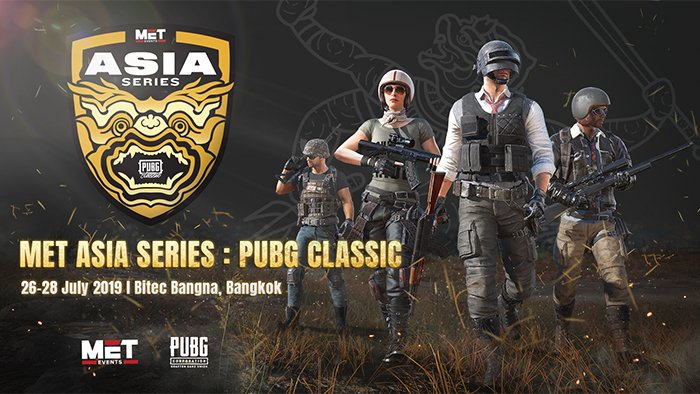The PUBG Global Championship is coming with the $2 million prize pool to round up the year for PUBG Esports. However, PUBG Esports has only been around for one and a half year and it still has a long way to go. Recently, PUBG Corporation director of central esports, Jake Sin just reveal the five-year plan of PUBG, about what they have achieved and what they still need to do. PUBG has long gone past the time when the game is on the top. The developer now will be focusing on the game competitive scene instead of getting more players.

The Foundation
PUBG released on Steam Early Access in 2017 and the competitive scene started to grow in 2018. At the time, it wasn't very big as the game wasn't very optimized and the playing experience wasn't exactly the best. According to Sin in an interview earlier, they have been experimenting a lot and gradually adjust the gameplay along with tournaments' format to find out the best combination.

The PUBG Global Invitation in 2018 was the perfect opportunity for PUBG to testing out the format. For instance, there are competitions for both FPP and TPP in the PGI, but the following tournaments were only for FPP. Also, from there they were able to set out their vision for the 2019 competitive structure.
The present
PUBG Esports in 2019 is divided into 3 phases with 9 regional leagues, North America’s National PUBGLeague (NPL), the PUBG Europe League (PEL), and the PUBG Korea League (PKL). All the regional tournament will start and end at the same time and the best teams from each region will join the big Global tournament afterward at the end of each phase. Ultimately, all those tournaments were to determine who will go to the Global Championship in California this November.

Having a consistent tournament structure is very important for the Esports scene of the game to grow. It allows fans to keep track of the progression of the scene throughout the year. Also, the official local and regional tournaments are where new talents and professionals will be born. By putting more investment into the local Esports scene, the upper competition scene will grow much faster and stronger.
The future
As for the future of PUBG, Sin said that PUBG Esports will not only get bigger but even better. Learning from the previous 2 full seasons, they now know how to run further tournaments in the future more smoothly and efficiently with fewer mistakes. They are going to refine the PUBG tournament system again so regional leagues can be closer to each other in terms of format, structure, or schedule. There is still a lot of variance of how each league can be.

Having players from different areas from all across the world is also a very important matter so the format of each regional leagues need to have some kinds of common ground. For example, the NPL ended Phase 2 at the start of June with a total of 40 matches played, while the PEL lasted a month longer with 96 matches during the same phase. This is one of the most concerning topics that have been discussed during the Nations Cup.
PUBG Corp. is also looking to support the PUBG Classics partners so tournaments can run smoothly without any unfortunate issue. During the MET Asia Series: PUBG Classic in late July, there was a power outage in the hosting region during the last match of the second day of the competition. The match was replayed and the result of the incomplete match was initially announced to be invalid. However, in the end, PUBG Corp. announced that both matches would be counted.

Frustrated by this news, seven teams between China and Chinese Taipei leave the event and the Chinese streaming site DouYu stopped streaming later rounds. Ultimately, PUBG Corp. had to announce that the tournament would no longer give China a slot for the Global Championship because of “the inability to maintain competitive integrity at the event.”
Sin said that his team will ensure that they will find a long-term solution so this incident like this won't happen again in the future. He also indicated that they will ask for the opinion from pro players about this matter as they are the ones who are directly involved.










Comments